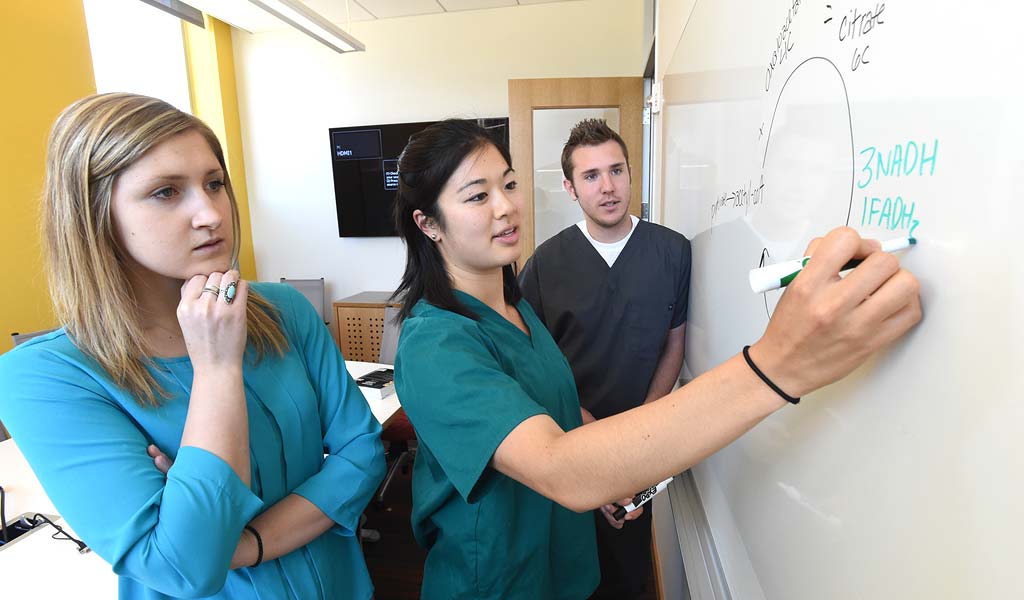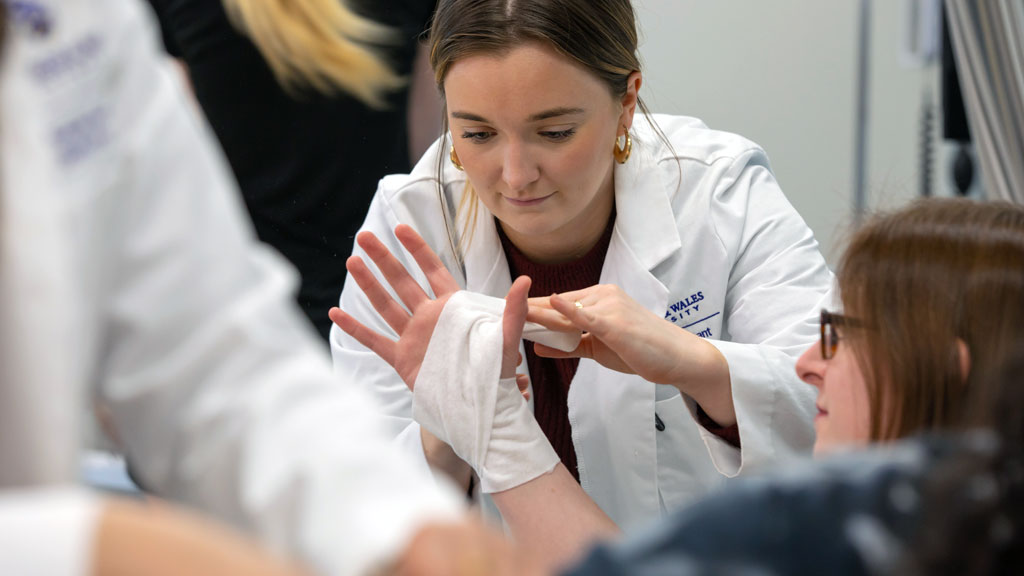Our Innovative Health Sciences Facility
Developing the skills to become a physician assistant (PA) takes hard work, dedication and an educational facility that meets the complex needs of this increasingly sophisticated field. JWU’s PA Studies program is housed in the LEED-certified Center for Physician Assistant Studies, an 18,000-sq. foot facility dedicated to the health sciences and located in Providence’s Knowledge District.
The Center is a fully-customized space that contains everything our students need to strengthen their skills, collaborate with their peers and grow into their profession as practitioners.

“I firmly believe that the PA building and patient care lab, the numerous stations and exam tables, and all of our opportunities to practice physical exam skills were key to my comfort and ability to work with patients during my rotations.”
AURORA DIMARCO '20, '24 MSPAS
Learning Space Tailored to Active Learning
Our facility is set up to maximize information sharing, teamwork and collaboration between students, faculty and community colleagues, with:
- Lecture halls with global teleconferencing capabilities and lecture capture
- “Active learning” classrooms that can be easily reconfigured for group work or lectures, depending on the need
- Cadaver-based anatomy lab with access to e-study guides at each dissection station
- Conference rooms for small group meetings
- Student lounges and study areas
- Clinical practice center similar to a hospital emergency room
From Day to Night: Study, Learn & Collaborate
The Center is designed to transition you seamlessly from morning to night — from the locker room where you can safely stash your valuables to the spacious learning commons where you can study with fellow students after hours. You won’t have to leave the building unless you choose to.
Why is this important? Those first 12 months of preclinical instruction are especially rigorous, and the building will enable you and your cohort to learn without interruption — whether you’re studying cardiovascular systems in the anatomy lab, documenting cases in the clinical practice center or attending virtual grand rounds in our lecture hall.
Sharing classrooms and common spaces also enhances the sense of community, enabling you and your fellow students to progress through the first year as a supportive group.

Tour the Center for Physician Assistant Studies
This tour of the Center emphasizes the focus on enabling students to work collaboratively. In addition, view the classrooms, clinical practice space, anatomy lab and various study spaces.